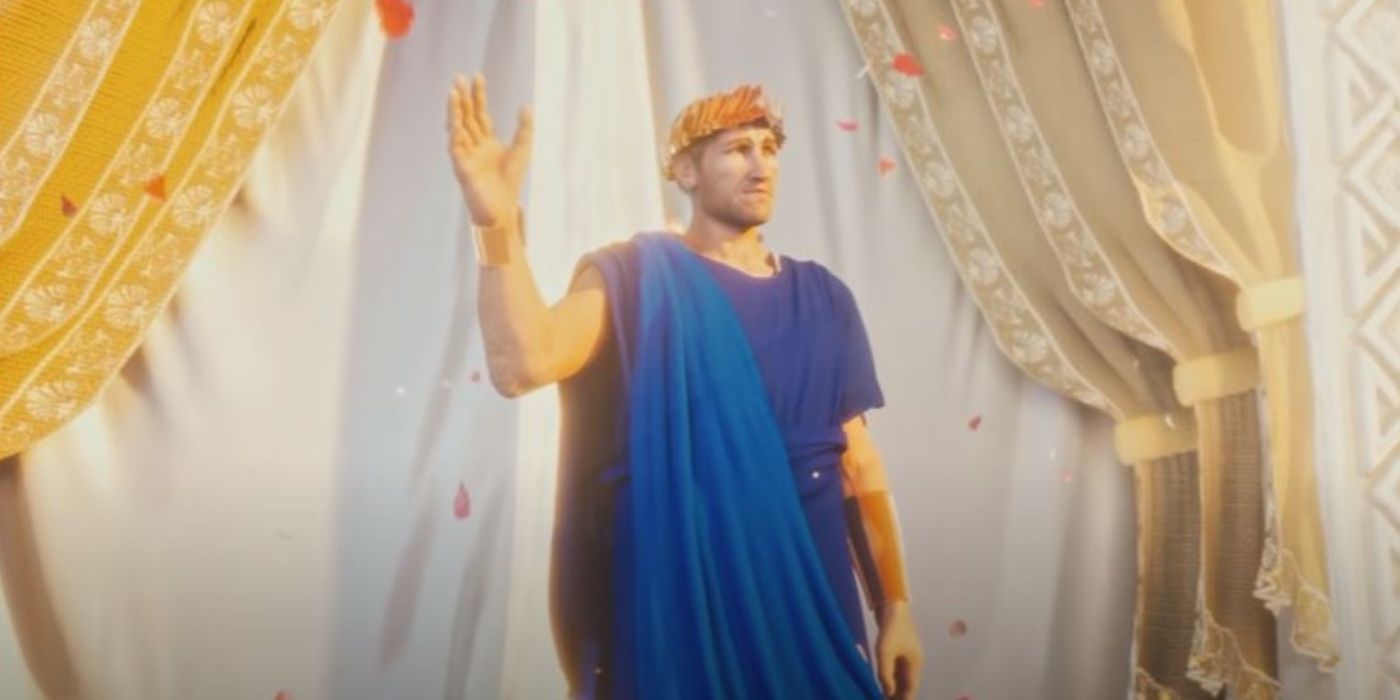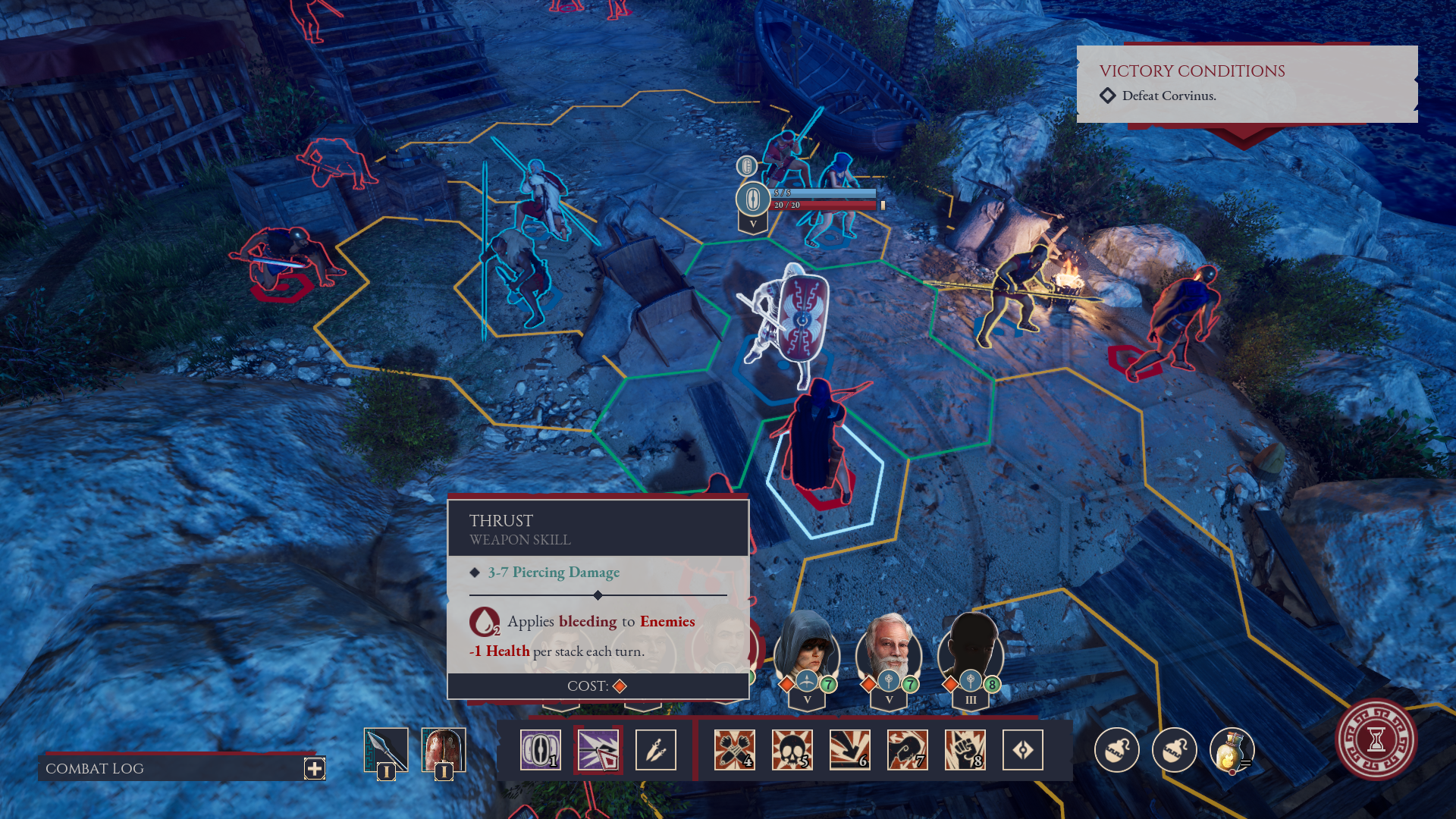
The Expeditions series of games have been about creating memorable relationships and journeys, all set against a richly realized historical backdrop. Logic Artists debuted it in 2013 with Expeditions: Conquistador, a turn-based tactical RPG that was partially funded through a Kickstarter campaign. Over the course of 7 years, the team's ambition has grown massively, and the latest in line is the recently announced Expeditions: Rome.
Game Rant was invited to an announcement event for Expeditions: Rome, which was hosted by Logic Artists' Creative Director Jonas Waever and THQ Nordic's Senior Producer Brad Logston, wherein the team showed off several trailers as well as an early preview build of the game. Following the showcase, Game Rant got an opportunity to speak with the hosts regarding all things Expeditions.
RELATED: 5 Games Everyone Wants to See at E3 2021
How long has Expeditions: Rome been in development?
JW: We began pre-production soon after the release of Expeditions: Viking in 2017 and showed the game to THQ Nordic in 2018. Full development has been going for about two years now.
What were your inspirations behind the game’s setting, particularly Rome which has been explored multiple times in video games?
JW: Compared to the Viking era it’s a wonderfully well-documented period with so many well known and larger-than-life characters to use. That alone has been a great change of pace for us. One thing you immediately notice when you delve into the period is how strong the parallels are to many of the politics and problems we deal with in the modern era. That chance - to reach out across a timespan of two millennia and create those connections in the player’s mind - is something we’ve truly enjoyed playing with.
What’s the most interesting bit about this recreation of Rome?
JW: In our view the most interesting part is the opportunity to engage with the setting of this game and make your own decisions as to what direction you want the story to take. Our story, of course, still has that large-scale perspective you’d expect from a story about Rome, but it doesn’t take a bird-eye view of things; it’s quite personal, which sets it apart from most of the videogames you’ve seen that deals with similar material. You get to play within the larger tapestry of Rome in the background, but make real, personal decisions that impact not only the future of Rome, but also you and your companions on a human level.
How has the team behind the Expeditions as well as the community grown with the games?
JW: Logic Artists is almost three times as big now as during the development of Viking. In order to support the creation of Rome, we’ve opened a new studio in Istanbul where most of our art team is now located, and we’ve hired quite a lot of people in Copenhagen as well. This has allowed us to write a significantly more expansive and ambitious story than we’ve ever done before, and ensure that our vision for the game could be executed to a much higher level of quality.
What has been your approach towards balancing intriguing stories and the core gameplay?
JW: This comes quite naturally to us fortunately – the merger of story and game systems has always been one of our key focus areas. Personally I have always been as much a writer as a game designer. Thinking about game features as both fitting into, but also feeding into, the story, just as the story should both serve and rely on the gameplay, is just how we think about games. The line between game designer and writer is very blurry on our team.
What’s your favorite addition in Expeditions: Rome, and how does that impact the core gameplay?
JW: One of my favorite additions is the territory pacification quests – the question of how to tie the legion conquest gameplay on the worldmap together with the main questline and the gameplay revolving around the traditional RPG party that is you and your praetorian guard was something that puzzled us from the beginning. One of the ways we solved it was to add these randomized pacification quests that also push you to use your recruited non-companions. Because pacification quests are much less subservient to the main storyline, our combat designer is free to really get creative with those combat encounters, and because they use non-companions that don’t have to be kept alive for the main story to work, this introduces an element of perma-death which adds to your personal story – although thanks to our triage system, you shouldn’t expect to lose a praetorian on the lower difficulties.

Logic Artists has primarily been a PC developer. Are there any future plans on releasing games for consoles, particularly next-gen ones?
BL: At the moment we’re focused on bringing the best version of Expeditions: Rome to the PC, but it certainly hasn’t excluded us from discussion the possibility of Rome landing on consoles someday in the future.
RELATED: Xbox Played a Huge Role in Microsoft's Revenue Success for Early 2021
What are your thoughts regarding the Indie/AA scene on Game Pass?
BL: At THQ Nordic, we are supporting Game Pass in general with a wide range of different offerings. It’s another way to reach an audience and is a good initiative as a whole. At this time, Expeditions: Rome is not planned for Game Pass.
Has the COVID-19 pandemic affected the workflow for the game?
JW: We were fortunately not very impacted by the lockdown. As far as I recall, Logic Artists was the first game studio in Denmark to send everyone home in early 2020. We watched the pandemic closely from the start and always took it very seriously, and fortunately nobody on the team has had the virus to our knowledge. Because we had already set up the studio to collaborate closely with our Istanbul studio and other international partners, the transition to fully remote work was seamless. In the long run we may have lost some efficiency of communication to the lack of in-person meetings, but then we may have gained some in the form of peace and quiet to work.
Expeditions: Rome features 3 distinct Acts in the campaign. How long would an average playthrough last?
JW: This is always a difficult question to answer for an RPG with so much optional content and varying difficulty based on genre familiarity. At a guess, 40 hours for an average playthrough sounds about right?
When can fans expect to finally play Expeditions: Rome?
JW: Expeditions: Rome will be available later this year on PC.
[END]
Expeditions: Rome is set to release in 2021 for PC.

